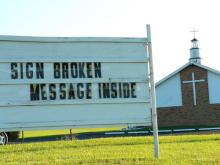name change

Last year, Sammi Mrowka, a graduate student at San Diego State University who is nonbinary and transgender, completed the legal process for changing their name and gender marker on IDs. Mrowka, who uses “he” and “they” pronouns, participated in a name and gender marker change clinic run by law students at the University of San Diego, who helped him fill out the paperwork.

WHEN THE WASHINGTON Football Team announced its new name in February, some longtime activists were less than impressed. “The way the franchise and its fans act like the past half-century never happened,” responded Amanda Blackhorse, a member of the Navajo Nation, “like we’re supposed to cheer for something that should have happened decades ago.” For Blackhorse and many others, a symbolic step like a name change—which the team’s leadership was forced to take, “kicking and screaming,” in the face of a campaign that began in the 1960s—“feels hollow” without genuine action to back it up, beginning with acknowledging the damage and making real efforts to repair the harm done to communities.
But getting rid of offensive names, while not a replacement for reparative, structural change, isn’t without significance. And it’s not only about sports franchises—many religious institutions have their own work to do, often involving legacies that go back centuries. Princeton Theological Seminary confronted just such a case earlier this year concerning its chapel named in honor of Samuel Miller, the seminary’s second professor.

NEW YORK — Did leaders of the Southern Baptist Convention hurt their missionary cause by opting not to change the denomination's name to something a bit more, well, marketable?
Maybe, but as the advertising executives of Madison Avenue here could attest, as tempting as it is to try to solve a missionary slump with a marketing campaign, religious groups — like commercial businesses — should think twice before undergoing a brand overhaul.
After months of deliberations, an SBC task force on Feb. 20 recommended against trying to re-brand the denomination, an idea that has been bandied about for more than a century.
Proponents of a change made a good case: for a denomination that was born in 1845 out of a defense of slavery, the name has since saddled Southern Baptists with a problematic name and historical baggage.
When Southern Baptists gather for their annual meeting this June, they will not be asked to create a new official name after top leaders decided it was not worth pursuing.
Instead they will be asked to approve a recommendation that Baptists end the name change discussion but have the option of using the unofficial moniker "Great Commission Baptists."
The recommendation was adopted Feb. 21 by the Southern Baptist Convention's Executive Committee after a task force deemed a name change impractical.